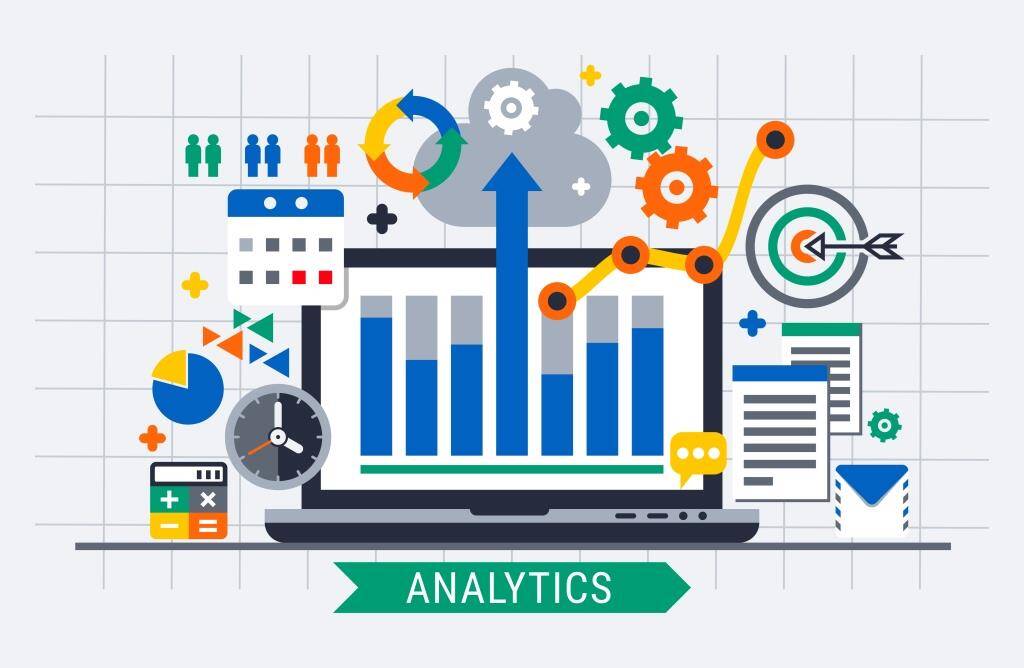Make The Most Of Development: Exactly How Analytics Drive Better Approaches
By taking advantage of information understandings, organizations can improve their functional strategies, anticipate market modifications, and boost customer engagement. The difficulty exists not only in accumulating information yet in effectively interpreting it to drive tangible results.
Comprehending Information Analytics
Information analytics is an organized computational analysis of data that allows companies to discover significant patterns and insights. This procedure incorporates a selection of strategies, consisting of statistical evaluation, predictive modeling, and data mining, which collectively aim to change raw data into actionable information - Analytics. By using these methodologies, companies can make informed choices that are rooted in empirical proof as opposed to intuition alone
The foundation of data analytics lies in its capacity to take care of substantial amounts of information from diverse resources. This consists of structured data, such as data sources, and disorganized information, consisting of social networks communications and client responses. Through using specialized software and tools, analysts can remove and process this data successfully, recognizing patterns and correlations that might not be quickly noticeable.
Comprehending data analytics additionally entails acknowledging the significance of information high quality and stability. Dependable and exact data is important for significant analysis; therefore, organizations need to execute durable data administration practices. The iterative nature of analytics permits for continuous refinement and renovation of strategies, ensuring that organizations stay agile in the face of transforming market dynamics and customer actions.
Key Advantages of Analytics

Among the vital benefits of analytics is its capability to give workable understandings. Organizations can promptly assess large quantities of information, discovering patterns that might not be promptly noticeable. This helps in anticipating market shifts and adapting strategies accordingly. Additionally, analytics promotes a culture of evidence-based decision-making, reducing reliance on instinct and uncertainty.
An additional considerable benefit is enhanced consumer understanding. Analytics devices make it possible for services to section their audience, track customer habits, and customize marketing initiatives. This targeted strategy not only boosts consumer interaction but also drives greater conversion rates.

Implementing Analytics Approaches
To totally understand the advantages of analytics, companies need to embrace organized strategies for application. This starts with clearly specifying objectives that line up with more comprehensive business goals. By developing particular, measurable end results, companies can focus their analytics efforts on areas that generate the highest possible return on investment.
Next, organizations must focus on data governance to guarantee the honesty and safety of the information being analyzed. This includes setting up procedures for information collection, storage, and gain access to while sticking to pertinent laws. Ensuring click to read top quality information is crucial for generating meaningful insights.
Additionally, fostering a culture of data-driven decision-making is necessary. This calls for training staff members to translate analytics findings and encouraging partnership across departments. When teams comprehend the value of analytics, they are extra most likely to incorporate understandings right into their everyday operations.
Last but not least, companies must on a regular basis review and refine their analytics approaches. The landscape of information and innovation is constantly developing, and remaining adaptable will permit companies to leverage brand-new devices and techniques efficiently. By implementing these structured techniques, companies can optimize the impact of their analytics campaigns and drive sustainable development.
Tools for Effective Analysis
Reliable evaluation depends on a variety of devices that help with the removal of understandings from information - Analytics. These devices can vary from simple spreadsheet applications to sophisticated machine finding out systems, each serving a special purpose in the logical process
Information visualization software, such as Tableau and Power BI, plays a crucial function in transforming intricate datasets right into easy to understand visual representations. These devices allow experts to recognize patterns and patterns swiftly, permitting even more enlightened decision-making.
Analytical analysis software, like R and SAS, offers innovative abilities for carrying out extensive analyses, including regression, hypothesis testing, and anticipating modeling - Analytics. These attributes empower companies to attract significant conclusions from their information, recognizing prospective chances and dangers
Moreover, database administration systems such as SQL and NoSQL data sources offer the necessary infrastructure for keeping and querying big volumes of data efficiently. They guarantee that data is arranged and accessible for evaluation.
Last but not least, company knowledge systems integrate numerous information resources, supplying a thorough sight of organizational performance. By making use of these tools efficiently, services can improve their analytical capabilities, allowing them to establish approaches that maximize development and improve overall performance.
Study of Success
Effective organizations typically utilize data analytics to drive impactful methods, as shown by a number of notable case studies. By using these understandings, Netflix has actually successfully tailored its content suggestions, resulting in enhanced customer engagement and subscriber retention.

Additionally, Starbucks employs information analytics to determine ideal shop locations and improve its item offerings. By checking out client demographics and buying patterns, Starbucks successfully identifies like it high-potential markets and customizes its menu to regional preferences, driving sales and customer commitment.
These situation researches highlight that reliable application of data analytics can bring about tactical benefits, fostering advancement and development within organizations across different industries.
Verdict
In conclusion, the integration of analytics into business strategies significantly improves decision-making processes and promotes lasting development. The effective implementation of analytics devices further sustains dexterity and advancement, allowing companies to navigate affordable landscapes with better accuracy.
Information analytics is a systematic computational evaluation of information that allows organizations to uncover purposeful patterns and insights.Comprehending data analytics additionally entails recognizing the importance of data top quality and integrity. Exact and trustworthy information is crucial for significant analysis; thus, companies have to implement durable data administration techniques.Next, organizations should prioritize information administration to make certain the stability and safety and security of the data being my blog examined.Successful companies typically take advantage of data analytics to drive impactful approaches, as shown by numerous remarkable instance researches.